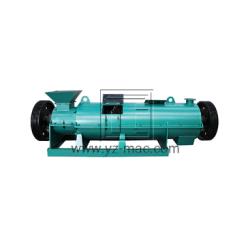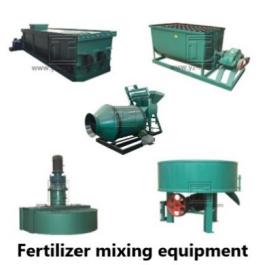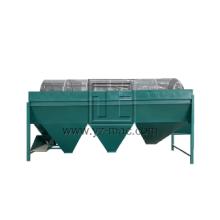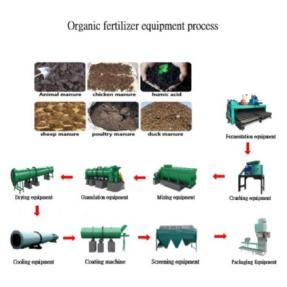Compost turning equipment
Composting is a natural process that converts organic waste into nutrient-rich compost. To facilitate this process and ensure optimal decomposition, compost turning equipment is essential. Compost turning equipment, also known as compost turners or windrow turners, is designed to mix and aerate the compost pile, improving oxygen flow and microbial activity.
Types of Compost Turning Equipment:
Tow-Behind Compost Turners:
Tow-behind compost turners are versatile machines that can be easily towed behind a tractor or similar vehicle. They are suitable for larger-scale composting operations, such as commercial composting facilities or large farms. These turners typically consist of rotating drums or paddles that lift and tumble the compost, ensuring thorough mixing and aeration.
Self-Propelled Compost Turners:
Self-propelled compost turners are equipped with their own propulsion systems, allowing them to move independently around the compost pile. These turners are highly maneuverable and suitable for medium to large-scale composting operations. They often feature rotating drums or augers that lift and agitate the compost, ensuring effective mixing and aeration.
Applications of Compost Turning Equipment:
Commercial Composting Operations:
Compost turning equipment is extensively used in large-scale commercial composting operations. These operations process significant volumes of organic waste, such as food scraps, yard trimmings, and agricultural residues. Compost turners ensure efficient mixing and aeration of the compost piles, facilitating decomposition and producing high-quality compost for various applications.
Municipal Composting Facilities:
Municipal composting facilities handle organic waste from residential, commercial, and institutional sources. Compost turning equipment plays a vital role in these facilities by ensuring proper compost pile management. It helps maintain optimum moisture levels, promotes uniform decomposition, and minimizes odor and pest issues, resulting in the production of quality compost for landscaping, soil amendment, and erosion control.
Farming and Agriculture:
Compost turning equipment is beneficial for farmers and agricultural operations. It allows them to recycle crop residues, manure, and other organic materials, creating nutrient-rich compost for soil improvement. Compost turners facilitate the decomposition process, optimizing nutrient release and enhancing soil structure, fertility, and water-holding capacity.
Land Rehabilitation and Soil Remediation:
Compost turning equipment is used in land rehabilitation and soil remediation projects. It helps break down and mix organic amendments, such as compost and biochar, with contaminated or degraded soils. The turning action promotes the integration of organic matter, improves soil structure, and assists in the removal of pollutants, contributing to the restoration of healthy soils and ecosystems.
Conclusion:
Compost turning equipment is a crucial component in efficient composting processes. With various types available, including tow-behind turners, self-propelled turners, and backyard turners, there is a suitable option for different scales of composting operations.








